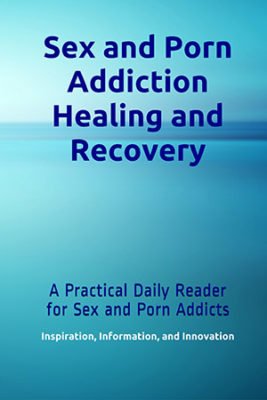
All daily inspirations can be found in the book Sex and Porn Addiction Healing and Recovery. Used here with permission of the author. Click the book cover image to purchase the book on Amazon.
We don’t recover from addiction by quitting. We recover by creating a new life where it is easier to not engage in the addiction.
Once upon a time, addiction was thought by most to be a moral failing, a lack of self will, or a deep psychological flaw (a personality disorder), rather than a chronic emotional illness. This moralistic belief system was prevalent until the mid-20th century when our understanding and view of addiction began to slowly but steadily shift. One reason for this shift was recognition that addicts are nearly always survivors of severe or chronic trauma. And the more we know about addiction, the more sense this makes. For one thing, it is clear that addictions are not about feeling good, they’re about feeling less. We turn to addictive substances and behaviors not because we want to have a good time, but to self-medicate and self-regulate our emotions. Our primary goal is to escape from life and to not feel stress, anxiety, depression, fear, and other forms of discomfort. That is the disease we must overcome.
Task for Today
Pay attention to your feelings, especially to feelings that trigger a desire for escape.